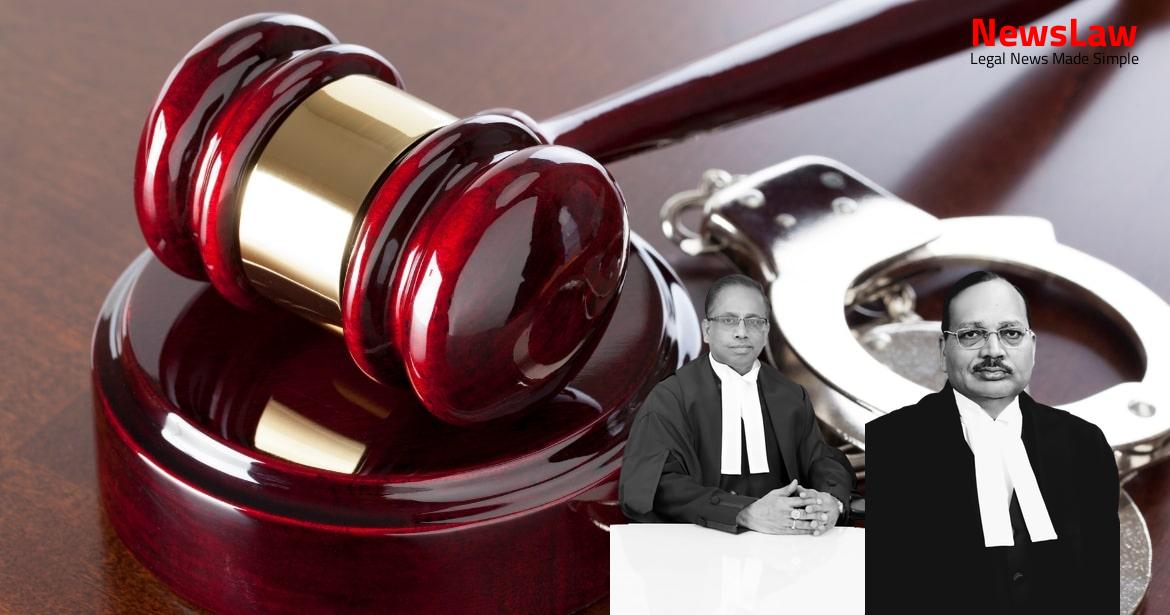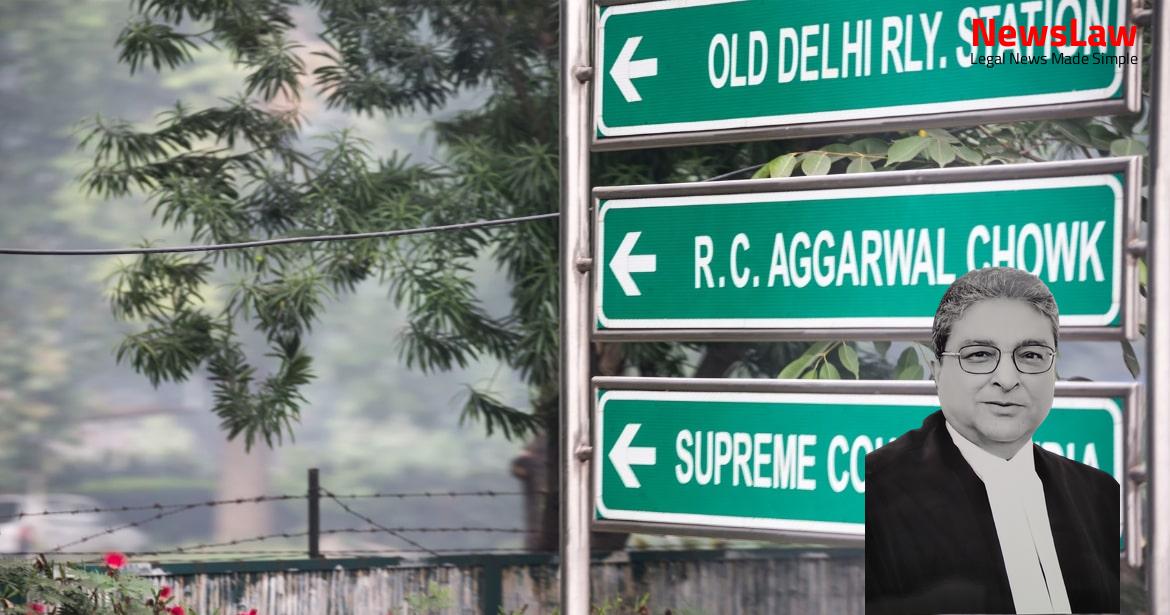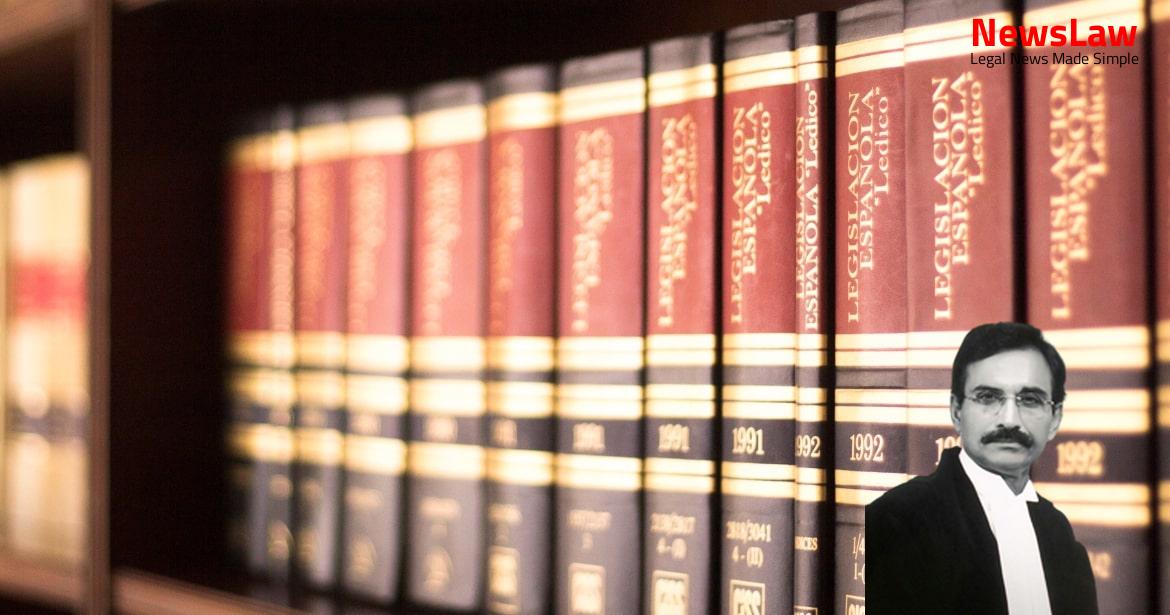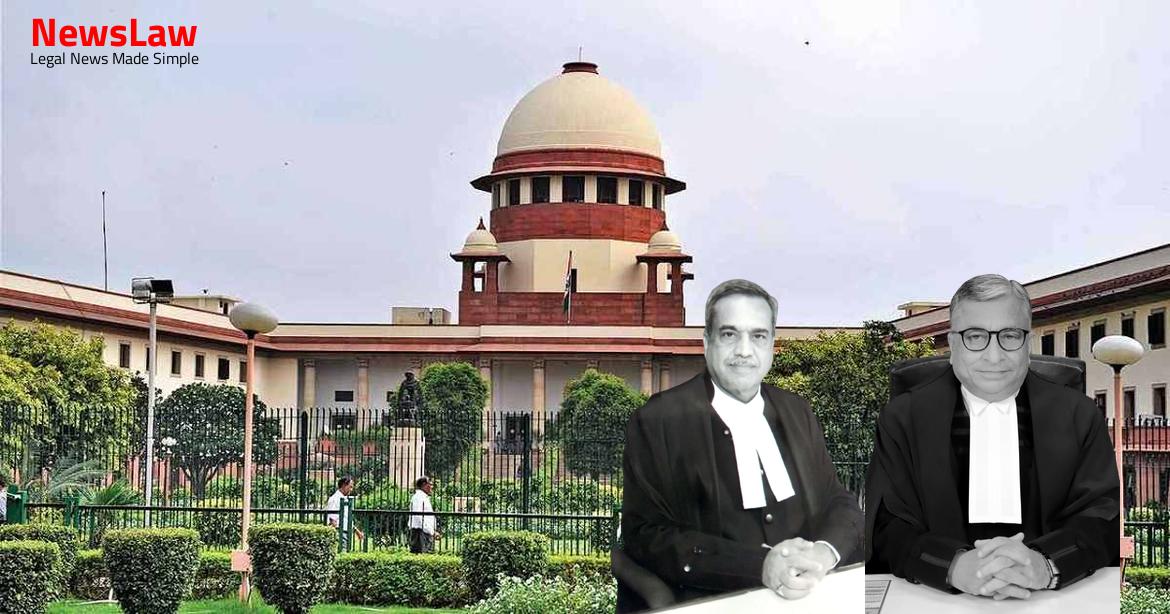Delve into a nuanced legal analysis of the implications of suppression of information in employment selection processes. The court’s thorough examination sheds light on the importance of fairness and reasonableness in decisions regarding candidates’ suitability. Stay tuned to understand the legal perspectives and key considerations in cases involving disclosure of material information in employment applications.
Facts
- The Appellant applied for the post of Constable on 12.02.2004.
- Five days after submitting the application, he was involved in a criminal case for offenses under Sections 324, 352, and 504 of the IPC, which he claims to be false.
- He cleared the written exam, interview, and physical efficiency test.
- The son of the informant, with whom the accused party was quarreling, turned hostile during the case.
- The Daroga Ji did not record the witnesses’ statements.
- The Appellant, after being selected, submitted an Affidavit disclosing criminal antecedents, stating no criminal cases were registered against him.
- The affidavit dated 30.10.2004 mentioned no criminal cases or investigations pending against the Appellant.
- The Division Bench upheld the dismissal of the Special Appeal stating that swearing a false affidavit at the time of enrollment renders a person unfit for disciplined service.
- The appellant, despite being acquitted in the criminal case, was held accountable for suppressing material information during enrollment.
- The Ld. Single Judge further held that swearing a false affidavit directly reflects on the conduct and character of the individual.
- The appellant’s Writ Petition was dismissed due to the deliberate suppression of material information about his criminal case involvement during form submission.
- The subsequent acquittal in the criminal case did not justify the initial concealment of information during enrollment.
Also Read: Analysis of Cheating and Forgery in Passport Case
Arguments
- The vexed question has resurfaced once more
- There seems to be no easy solution in sight
- The respondent is called upon to provide further evidence or arguments
- The resolution of this matter remains uncertain
- Ms. Garima Prashad and Ms. Ruchira Goel argued that the appellant made false representations in certain clauses of his Affidavit.
- Two other individuals were also found to have provided false statements and faced cancellation.
- The appellant was acquitted in a criminal case before filing his affidavit.
- The appellant believed in good faith that he did not need to disclose the criminal case since it was no longer pending.
- It is contended that there was no intention to deceive as there was no willful concealment.
- Mr. Premashis Choudhary, representing the appellant, stated that there was no willful concealment as there was no pending criminal case against the appellant at the time of submitting the application form.
Also Read: Discrepancy in Date of Birth: Court’s Legal Analysis
Analysis
- The judgment discusses the importance of accurate information in attestation/verification forms for employment.
- The case involved the appellant being acquitted in a criminal case but later facing cancellation of selection due to alleged suppression of information.
- The court emphasized on the importance of fair and reasonable procedures in employment termination decisions.
- Multiple instances of character verification and police reports were highlighted in the case.
- The judgment points out that suppression of material information does not automatically warrant termination from service.
- The significance of considering the nature of the post, duties, and impact of suppression on suitability was discussed.
- It was noted that the employer must exercise power judiciously and objectively in such cases.
- The case involved scrutiny of the affidavit submitted by the appellant regarding criminal cases, arrests, and pending matters.
- Character certificates and verification reports played a key role in determining the appellant’s eligibility.
- Ultimately, the appeal was allowed, the termination order was quashed, and the appellant was reinstated without back wages.
- Information provided by candidates regarding conviction, acquittal, arrest, or pending criminal cases must be truthful without suppression or false mention.
- The employer may consider special circumstances before terminating services or canceling candidature for providing false information.
- Acquittals in cases of moral turpitude or serious offenses may still warrant consideration based on antecedents and relevant facts.
- Declaration of concluded criminal cases does not exempt the employer from assessing the candidate’s antecedents.
- If there is suppression or false information about a criminal case with a recorded conviction or acquittal that later comes to light, appropriate actions can be taken by the employer.
- Avtar Singh (Supra) emphasizes the importance of considering special circumstances when canceling a candidate’s candidature for providing false information.
- The case of Morris v. Crown Office highlights the leniency shown towards young individuals who may have committed wrongs in special circumstances.
- The judgment in Ram Kumar vs State of U.P. underscores the need for a nuanced approach in assessing the suitability of candidates with regards to suppression or false information.
- The employer must act reasonably and based on objective criteria while making decisions regarding cancellation or termination of candidature or employment.
- The judgment in Director General of Police, Tamilnadu, Mylapore vs J. Raghunees is distinguished from the current case.
- Various crucial aspects such as the nature of the office, timing and nature of the criminal case, character verification reports, socio-economic background, and other antecedents should be considered in determining suitability and relief.
- The principle of reforming a person rather than branding them a criminal lifelong is highlighted.
- The judgment in Avtar Singh Vs. Union of India and Others provides vital guidelines on how suppression of material information should be assessed.
- The judgment also emphasizes on fairness and reasonableness in the employer’s decision-making process.
- The scarcity of employment opportunities in the country is acknowledged, further stressing the importance of a fair and thorough assessment of candidates.
- The law on suppression of information and its consequences is established by the three-Judge Bench in Avtar Singh (Supra).
- The court will consider each case based on the facts and circumstances that prevail, taking a holistic view with objective criteria and precedents as a guide.
- Mechanically holding a selection as irregular and illegal due to incorrect affidavit without considering suitability is not fair.
- Cancellation of appointment without fair and reasonable grounds is deemed unjust.
- Non-disclosure of a criminal case, which ended in acquittal, may not be fatal in specific circumstances like in this case.
- Broad-brushing every non-disclosure as a disqualification would be unjust and oblivious to ground realities in a diverse country.
Also Read: 2-1 Verdict Halts Conviction, Dissent Highlights Potential Flood of Unclear Legal Rulings
Decision
- The Division Bench of the High Court’s judgment dated 17 November, 2015 and the discharge order dates of 24 April, 2015 and 23 December, 2021 have been quashed and set aside.
- The appellant will not receive arrears of salary for the period during which he did not serve the force for which he was selected as per the Recruitment Notification dated 20.01.2004.
- The appellant is directed to be reinstated in service as a Constable as selected in reference to employment notice no. 1/2011 dated 27 February, 2011.
- The appellant will not be entitled to arrears of salary for the period not served in the force, but will receive all notional benefits like pay, seniority, and other consequential benefits.
- Necessary orders to appoint the appellant should be passed within four weeks.
- The appeal is allowed and the orders of the learned Single Judge and the Division Bench are set aside.
- Further relief orders to be passed within one month granting all notional benefits to the appellant.
- The order of the Commandant 27 Battalion, PAC, Sitapur dated 12.04.2005 is quashed and set aside.
- The respondents are directed to take necessary action accordingly.
Case Title: RAVINDRA KUMAR Vs. STATE OF U.P. (2024 INSC 131)
Case Number: C.A. No.-005902-005902 / 2012



